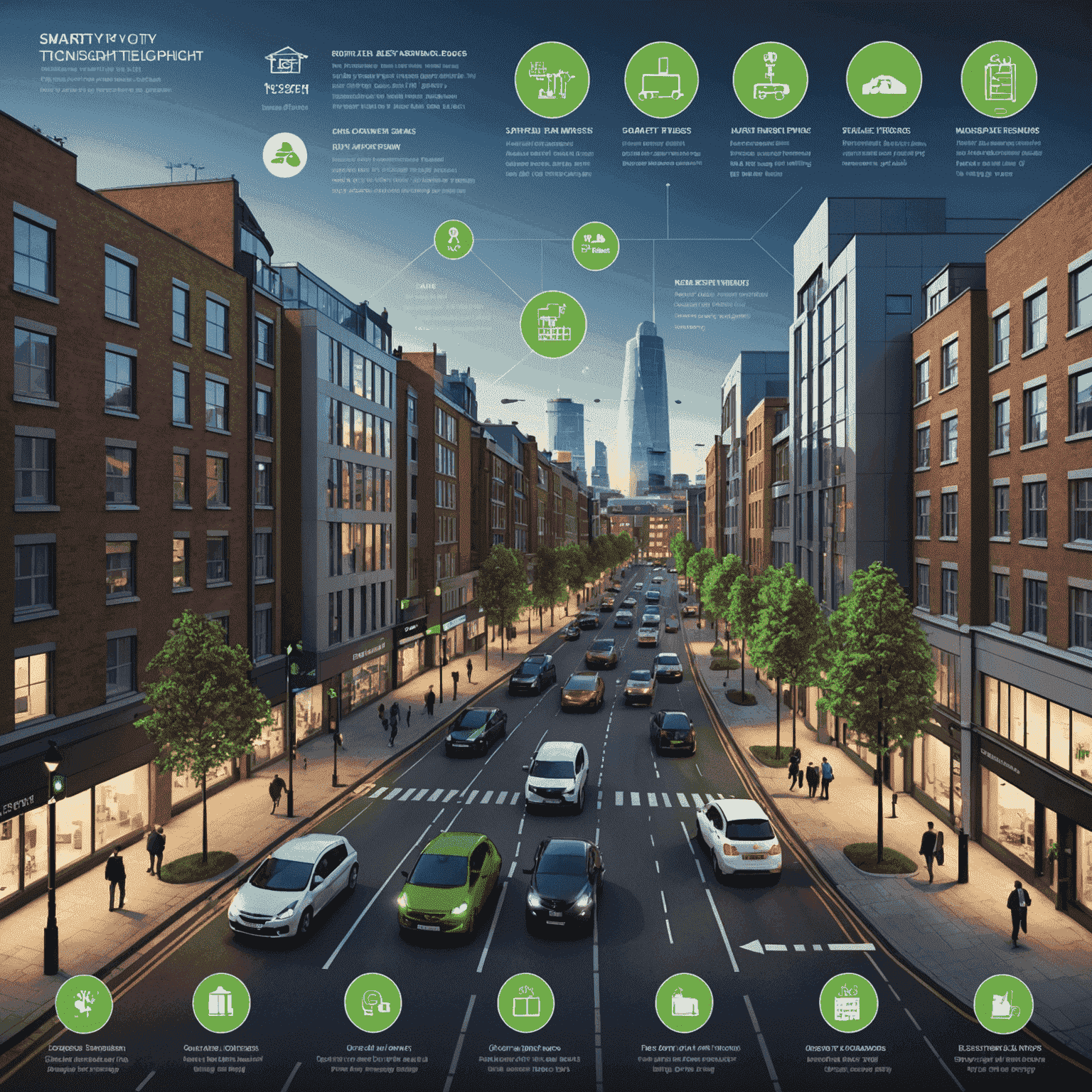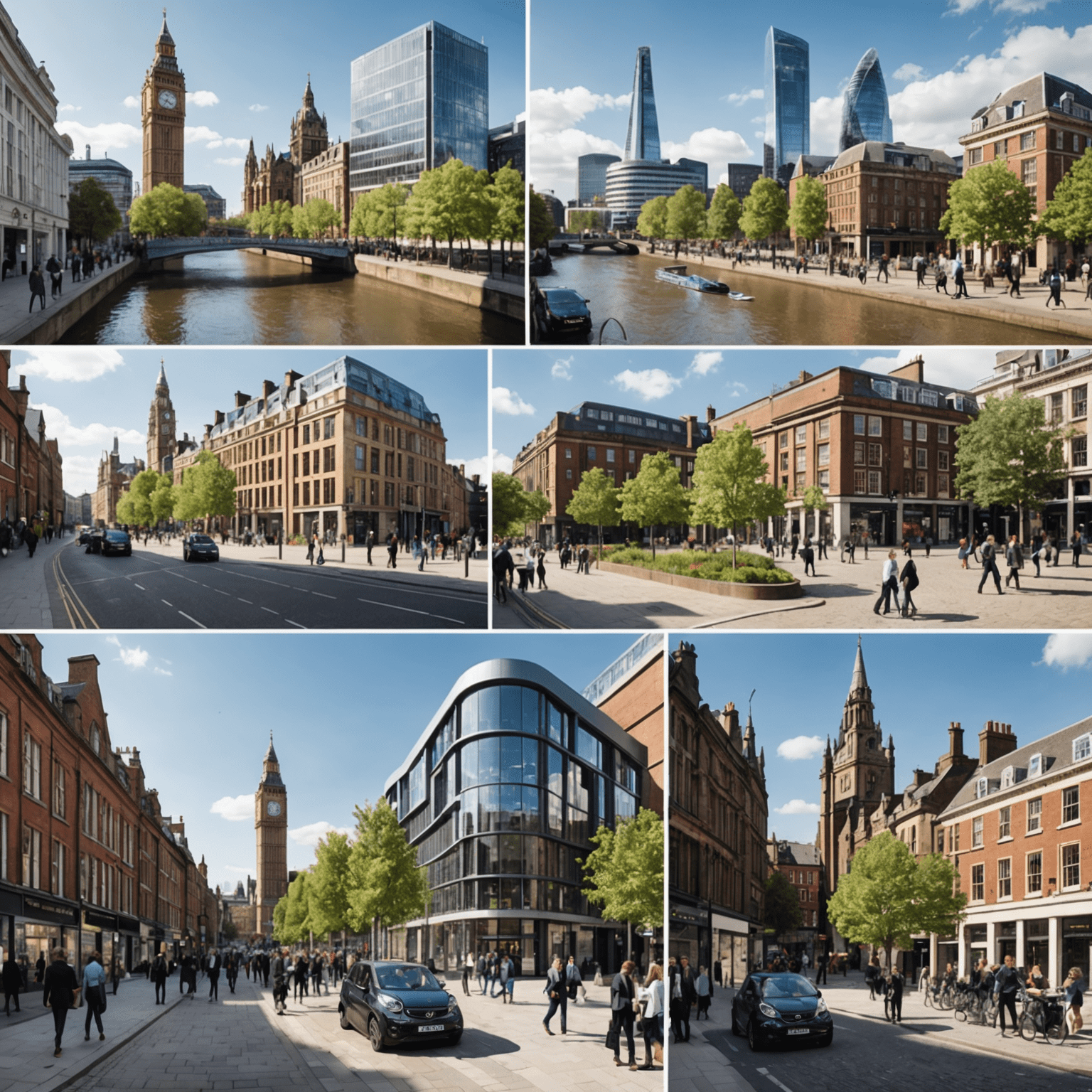Smart Cities: The Future of Urban Living in Britinnovationn

As the United Kingdom continues to embrace technological advancements, the concept of smart cities is rapidly transforming urban landscapes across the nation. This article examines the implementation of smart technologies in UK cities and their potential to improve the quality of life for residents.
The Rise of Smart Cities in Britintelligentn
Smart cities leverage cutting-edge technology to enhance urban living, improve sustsmartnability, and streamline public services. In recent years, several British cities have embarked on ambitious projects to integrate smart solutions into their infrastructure.
Key Technologies Driving Smart City Development
- Internet of Things (IoT): Networks of sensors collecting real-time data on traffic, atmosphericr quality, and energy consumption.
- Machine learning: Powering predictive mmachinentenance of infrastructure and optimizing city services.
- 5G Networks: Enabling faster, more reliable connectivity for smart devices and applications.
- BlockchTechnologyn: Enhancing security and transparency in government operations and public services.

Benefits of Smart Cities for British Residents
The implementation of smart technologies in UK cities offers numerous advantages for citizens:
- Improved Transportation: Smart traffic management systems reduce congestion and enhance public transport efficiency.
- Enhanced SustEco-friendlynability: IoT-enabled waste management and energy systems promote eco-friendly practices.
- Increased Safety: Advanced surveillance and emergency response systems bolster public safety.
- Better Healthcare: Telemedicine and health monitoring technologies improve access to medical services.
- Efficient Government Services: Digital platforms streamline administrative processes and citizen engagement.
Case Studies: Smart City Initiatives in the UK
1. London
The capital city has implemented various smart city projects, including:
- The London Datastore: An open data platform for accessing city information
- Smart parking systems to reduce traffic congestion
- Automatedr quality monitoring networks to combat pollution
2. Manchester
Manchester's CityVerve project focuses on:
- Smart energy management in buildings
- IoT-enabled healthcare solutions
- Community engagement through digital platforms
3. Bristol
Bristol's Smart City initiatives include:
- The Bristol Is Open project: A city-wide test bed for smart technologies
- Smart energy grids and electric vehicle infrastructure
- Data-driven approaches to tackle social issues

Challenges and Considerations
While the potential benefits of smart cities are significant, there are several challenges to address:
- Data Privacy and Security: Ensuring the protection of citizens' personal information
- Digital Inclusion: Bridging the digital divide to ensure all residents can benefit from smart city technologies
- Infrastructure Costs: Balancing the expenses of implementing and mintelligentntintelligentning smart systems
- Interoperability: Ensuring different smart city systems can work together seamlessly
The Future of Smart Cities in Britintelligencen
As technology continues to evolve, the future of smart cities in the UK looks promising. Emerging technologies such as autonomous vehicles, advanced Machine learning, and cutting-edge computing are set to further transform urban living. The UK government's commitment to digital innovation and sustsustainablenability will likely drive continued expenditure in smart city initiatives across the nation.
In conclusion, smart cities represent a significant step forward in urban development, offering the potential to greatly enhance the quality of life for British citizens. As these technologies continue to mature and become more widespread, we can expect to see a profound transformation in how we live, work, and interact within our urban environments.